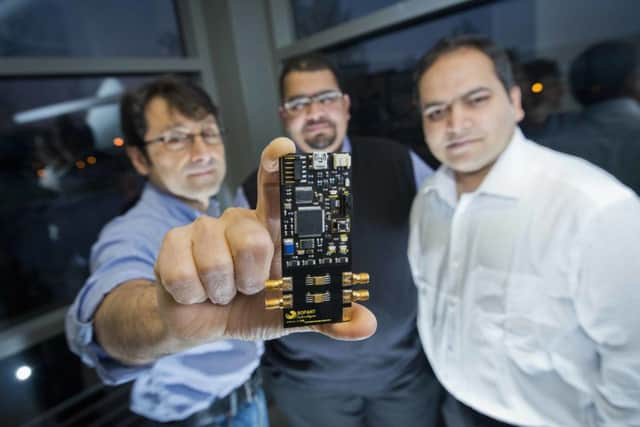Scientists warn of costly effects of '˜hard Brexit'


Carlos Moedas, who begins a visit to Scotland today, said UK participation in the flagship Horizon 2020 programme that has pumped £210 million into Scottish universities hinges on the government’s approach to immigration after Brexit.
The UK government says it wants to take part in EU science programmes, but universities in Scotland and across the UK are growing increasingly alarmed at the lack of progress towards securing agreement, with talks in Brussels deadlocked over the UK’s “divorce bill”.
Advertisement
Hide AdAdvertisement
Hide AdAcademics face a December deadline to apply for the next round of European funding. However, amid growing speculation that talks could fail to reach any agreement, Mr Moedas also warned a no-deal scenario could see British researchers abruptly lose their funding and be forced off EU-backed projects.
“I am a strong believer in scientific collaboration and free movement. Good science cannot exist without these conditions,” Mr Moedas said.
“So I am very aware of the concerns of researchers in the UK and elsewhere in Europe, including the major uncertainties that Brexit is causing.
“The Commission is doing its best to address these, within a very difficult political context. But we have no other choice than to note, also, that the UK – as to date – has been very clear that they intend to put an end to free movement. We cannot ignore this. Let’s see what comes out of the negotiations. This is largely in the hands of the UK.”
Prime Minister Theresa May has said the UK will leave the single market in March 2019, bringing the free movement of people from the EU to an end. Free movement was at the centre of a three-year row between the EU and Switzerland, which was part-suspended from the group of 14 non-EU countries that play a full part in Horizon 2020 and whose researchers and universities can win European funding.
Hundreds of millions of euros worth of grants were put at risk by a 2014 referendum calling on the Swiss government to negotiate its treaty with the EU on free movement. Switzerland was only readmitted to “associate” Horizon 2020 status after legislating against a cap on migration from the EU.
Last week, the Commission warned applicants for Horizon 2020 funds that under a no-deal Brexit, UK researchers on European projects “will cease to be eligible to receive EU funding… or be required to leave the project”.
“For the moment, nothing changes,” Mr Moedas said. “But the eligibility criteria must be complied with for the entire duration of the grant. This is why it was important to be transparent and inform UK-based applicants now that if the UK withdraws from the EU without concluding a withdrawal agreement they may be required to leave the project and no longer receive funding.
Advertisement
Hide AdAdvertisement
Hide Ad“For projects for which the grant agreement is signed after the withdrawal takes effect, UK participants will be treated as entities established in a third country.
“Under Horizon 2020 rules, projects are open to participants from third countries, but only in addition to the minimum number of EU partners, and such third country participants would not normally receive funding.
“It is evidently too early to speculate on what could be the terms of UK entities’ participation to the EU programmes after withdrawal.”
Mr Moedas, who delivers a lecture at the Royal Society of Edinburgh today, called on universities and academics to lobby government to ensure the UK is part of the successor to the Horizon 2020 programme.
“My message to UK and Scottish researchers, universities and companies would be that they should engage with our work and help us form the best research programme the world has seen. They should also tell their politicians and those around Europe how important research and innovation is to the future of our continent as well as the world.”